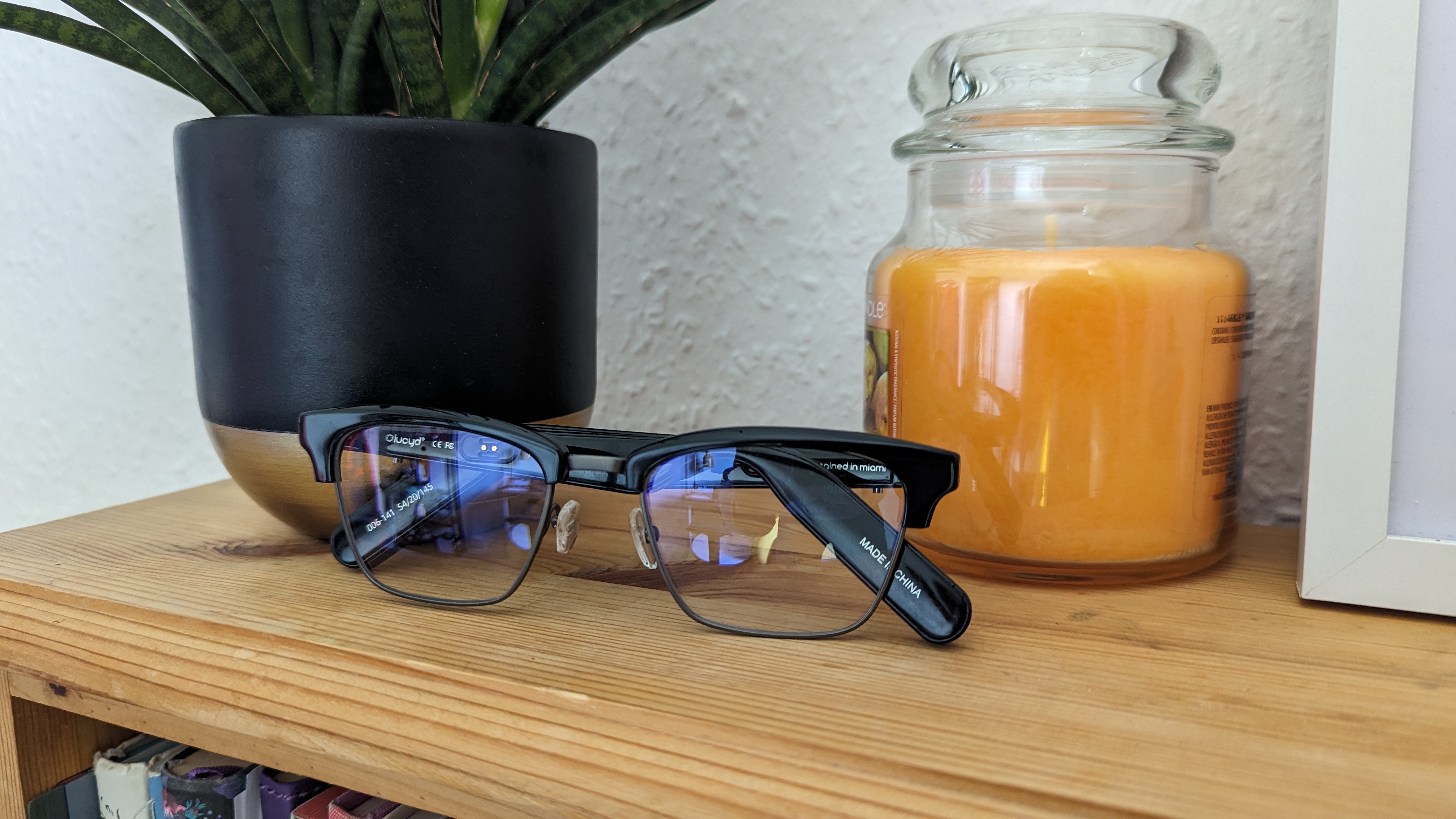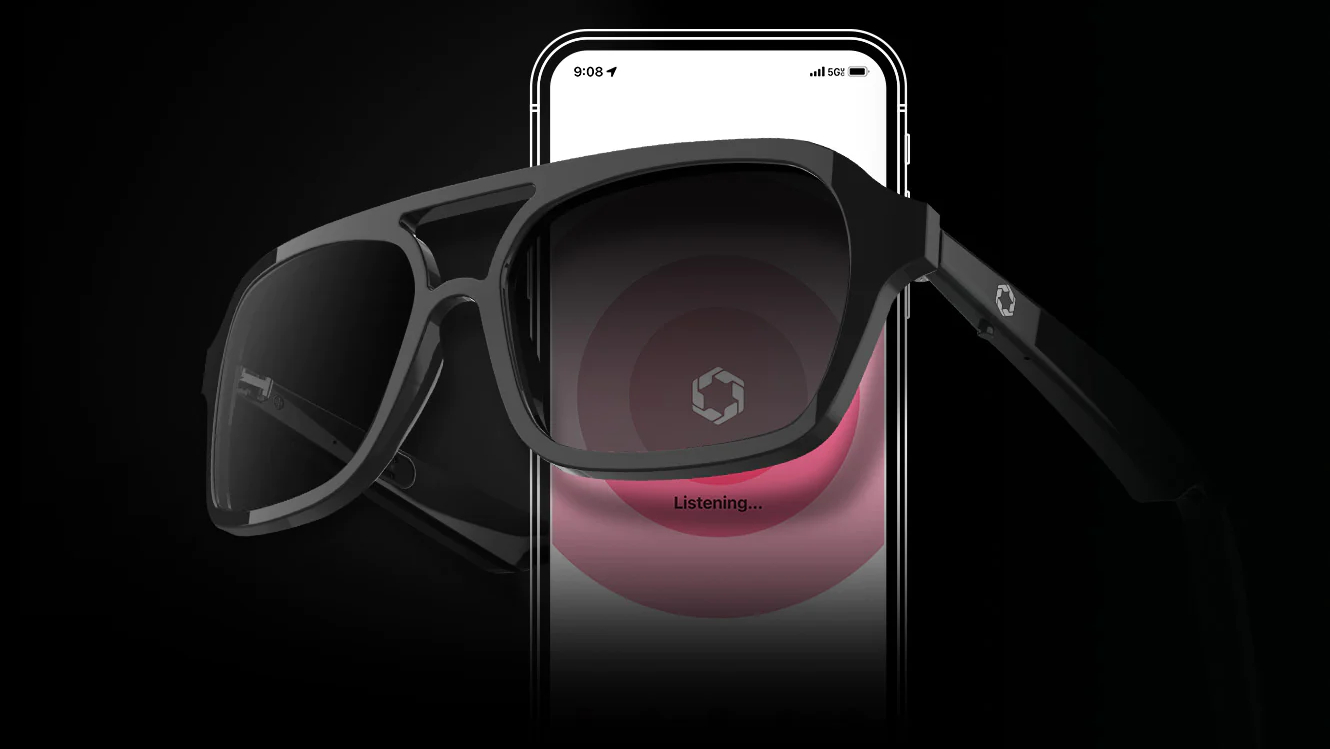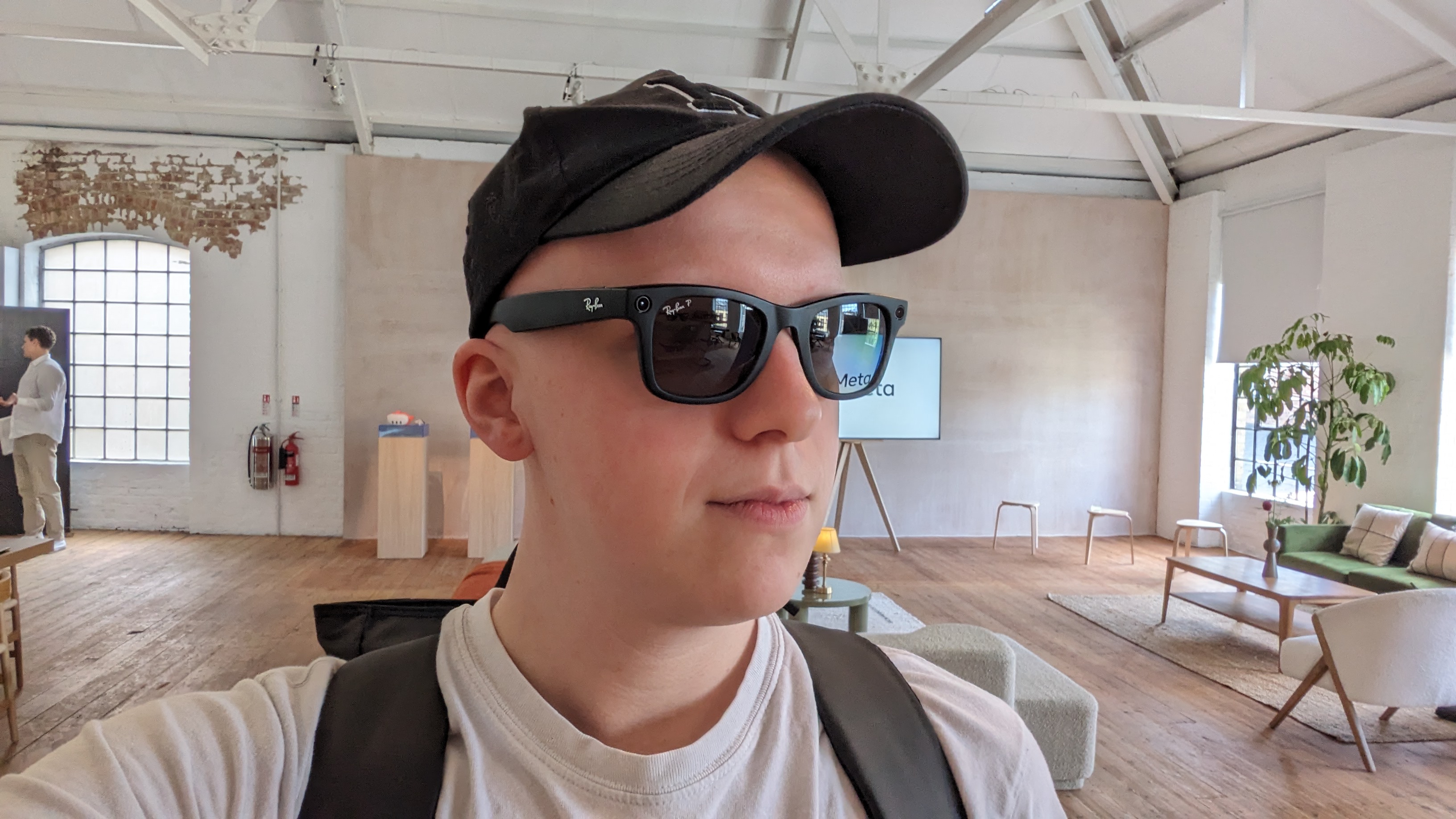I took these ChatGPT smart glasses on a day trip to the beach, and I really wish I took my dumb headphones instead
The Lucyd Lyte glasses left me wanting more

For the past week or so I’ve been testing out the Lucyd Lyte smart glasses, which stood out from the crowd thanks to an impressive ability – they’ll let me talk to ChatGPT and ask it queries while I’m out and about.
I’ve done a lot of at-home testing, and wearing them while I go out and do errands, but I thought I’d try giving them a proper challenge by seeing how useful they are on a day trip to Brighton – a sunny seaside town in the south of the UK. I wanted to see how well they work as a virtual tour guide by asking ChatGPT for sightseeing and restaurant advice, and how well they could keep me entertained with music while I explore shops in Brighton’s North Laine, and as a relaxing background beat while I kick back on the beach.
As I went I’d compare them to my usual experience of relying on my smartphone and open ear headphones – and spoiler alert: the glasses struggled to compete. A mixture of an uncomfortable design and poor audio left me wanting more. And don’t get me started on my disappointments with its AI integration.
Not so smart glasses
As mentioned in the intro, the headline feature the Lucyd Lyte smart glasses are boasting is their ChatGPT integration. As Lucyd has keenly highlighted in press releases and on its website, while wearing the specs you can talk to ChatGPT – asking it questions that the generative AI will respond to using its bank of stored data with replies that can be more in depth than Siri’s or the Google Assistant's responses.
While making my way to the station to catch a train into the city I decided to ask ChatGPT some questions about Brighton to pass the time – looking for advice on potential places to eat, activities I could do, and landmarks I should keep an eye out for. As expected, it did a decent job at providing suggestions based on my queries even though it did ramble a bit.
That is, until I started to ask for more up-to-date information.
The day after my glasses test I had plans to attend an Outlaws of Thunder Junction pre-release at my favorite Brighton game shop – an event celebrating the launch of Magic the Gathering’s latest Wild West-themed set. I didn’t know too much about what awaited me at Thunder Junction, so I decided to ask the glasses what it knew.
Sign up for breaking news, reviews, opinion, top tech deals, and more.

Unfortunately this version of ChatGPT informed me that its data only goes up to September 2023 – so it had no clue what I was talking about. This limitation was frustrating, but would have been more forgivable if not for one other issue: to talk to ChatGPT I needed to manually activate it by pressing a button in the Lucyd app on my Android phone before every query.
So I couldn’t just say a wake word like "Hey Lucyd…" or "Hey Google, ask Lucyd…,” I had to use my phone every time – an inconvenience that left me questioning why I didn’t just use Google search or a different generative AI service with internet access like Bing Chat if I already had my smartphone in my hands.
Apparently hands-free ChatGPT chatting is available on iOS, but if anything that's just more frustrating; I never love it when third-party hardware locks features to specific platforms.
'Ear lies the problem
It wasn’t just the ChatGPT integration that let me down, audio-wise the glasses didn’t fare too well either.
The Lucyd Lyte glasses, like many other smart specs, boast an open-ear design with speakers housed in the arms that blast audio towards your ears – though a better verb in this instance might be whimper. Because on my walk around the seaside city, even when I had the glasses turned up to their loudest the speakers couldn’t compete with the din of traffic and passer-bys, or caws of hungry seagulls.
At the same time these speakers leaked like a colander. When I was traveling to and from Brighton on the train I had to turn the volume right down – as otherwise the other passengers next to me would hear my music as easily as (maybe even more easily than) I could. On middling or quieter loudness settings less audio escaped, but this might be because at these volumes even I struggled to make out what sound was trickling from the glasses’ speakers.
The only advantage is I wasn’t ever closed off from the outside world. So as I navigated streets bustling with people, cars, buses and bikes I always felt completely aware of my surroundings.

With my day drawing to a close I wandered back from the station to my flat – a slight sense of urgency in my step.
As the tip of my toes crossed the threshold of my home I considered my day of Lucyd testing complete so I ripped the specs from my face – as I desperately wanted to give my ears a rest because these things were not comfy.
I wear regular glasses all the time, and I’ve worn smart glasses for hours-long stretches in the past and have usually found them to be fine – as is the case with the Ray-Ban Meta Smart Glasses, and the Xreal Air 2 – but the Lucyd Lytes started to make my ears feel sore after a while, and it was a relief when I finally took them off.
Beyond this comfiness issue I did really appreciate the Lucyd Lytes’ design, chiefly how many different frame and lens options there are. Other smart glasses typically offer just a couple of colors, maybe with an alternative shape or two – but Lucyd had several designs and lens types to pick from, making them feel more like a more personal fashion accessory.
I see room for improvement
When I’m testing a pair of smart glasses I compare it to my usual smartphone and open-ear headphones setup. How does the audio quality and clarity stack up? Are they comfier to wear? Do they offer unique features, or a more convenient way to access my existing digital services?
Unfortunately, in every regard the Lucyd Lyte glasses failed to impress.
While ChatGPT integration is a neat feature, it being a version without internet access limited its helpfulness. This wouldn’t be so bad if it was a completely hands-free experience, but because I needed to pull out my Google Pixel and open the Lucyd app to manually access ChatGPT every time there’s no advantage to using this service over a better generative AI app – one with access to more up-to-date information.
I won’t rehash all of my Lucyd Lyte audio gripes, but know that every issue I had doesn’t exist with my go-to air conduction headphones; the JBL Soundgear Sense. They pack a punch with expressive and complete sound that has an impressive amount of bass considering how small these cans are. They leak much less, and I can still remain completely aware of my surroundings while wearing them.
My trusty JBLs also way comfier – I constantly forget I’m wearing them.

I think AI-integrated smart tech is something we’ll see more of. Meta’s adding better AI-functionality to its Ray-Ban Smart Glasses – which have the added benefit of a camera for the currently in-beta ‘Look and Ask’ feature – and as I write this Nothing has revealed its Ear and Ear (a) buds will have a pinch-to-talk to ChatGPT feature (provided they’re connected to a Nothing Phone).
On this note, I think the Lucyd glasses have a lot of potential, but as they stand I wouldn’t recommend you buy a pair. Heck I wouldn’t recommend you go and buy any AI smart glasses right now. The tech is at best merely okay, and some of their most impressive skills are often still in early experimental stages – read: their reliability is all over the place.
Over the next few years we'll likely see a lot of developments in the wearable space – with smart glasses, smart rings, and a whole host of smart accessories – but for now, I’m left wanting more.
You might also like

Hamish is a Senior Staff Writer for TechRadar and you’ll see his name appearing on articles across nearly every topic on the site from smart home deals to speaker reviews to graphics card news and everything in between. He uses his broad range of knowledge to help explain the latest gadgets and if they’re a must-buy or a fad fueled by hype. Though his specialty is writing about everything going on in the world of virtual reality and augmented reality.